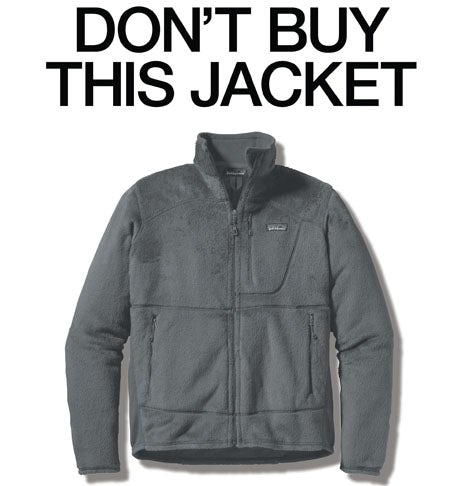Case study: Patagonia’s ‘Don’t buy this jacket’ campaign
Outdoor clothing manufacturer Patagonia was founded by climbing enthusiast Yvon Chouinard in 1973 and is using a marketing strategy which could be thought of as being part nudge, part shock tactics. The company initially made climbing equipment but changed its philosophy to focus on environmentally-sound products after Chouinard realised his climbing tools were causing damage to rocky cliff faces.

Also in this story:
Patagonia has since grown into a $600m company with more than 50 stores worldwide, including six in Europe. But it has strived to remain true to its eco-friendly ethos by using organic cotton and recycled polyester in its products and by urging consumers to consider the environmental effect of their purchases.
In the run-up to Christmas, the brand ran a poster and PR campaign that told customers ‘Don’t buy this jacket’. The message was intended to encourage people to consider the effect of consumerism on the environment and purchase only what they need.
Although this approach might seem risky, European marketing director Jonathan Petty says it has helped to establish a strong community of people who appreciate the brand’s values and its products. “Our customers expect very high quality and that’s why they always come back to us,” he says.
“At the same time we help consumers change their behaviour for the better by encouraging them to make more considered purchases.”
The brand encourages people to support its environmental efforts by signing up to ‘The Common Threads Initiative’, a scheme set up by Patagonia that asks people to buy only what they need, repair what breaks, and re-use or recycle everything else.
“We’re at the opposite spectrum of big brand disposable fashion,” explains Petty. “We’re about making great quality products that are designed to last, so we have a lifetime warranty on our products.”






